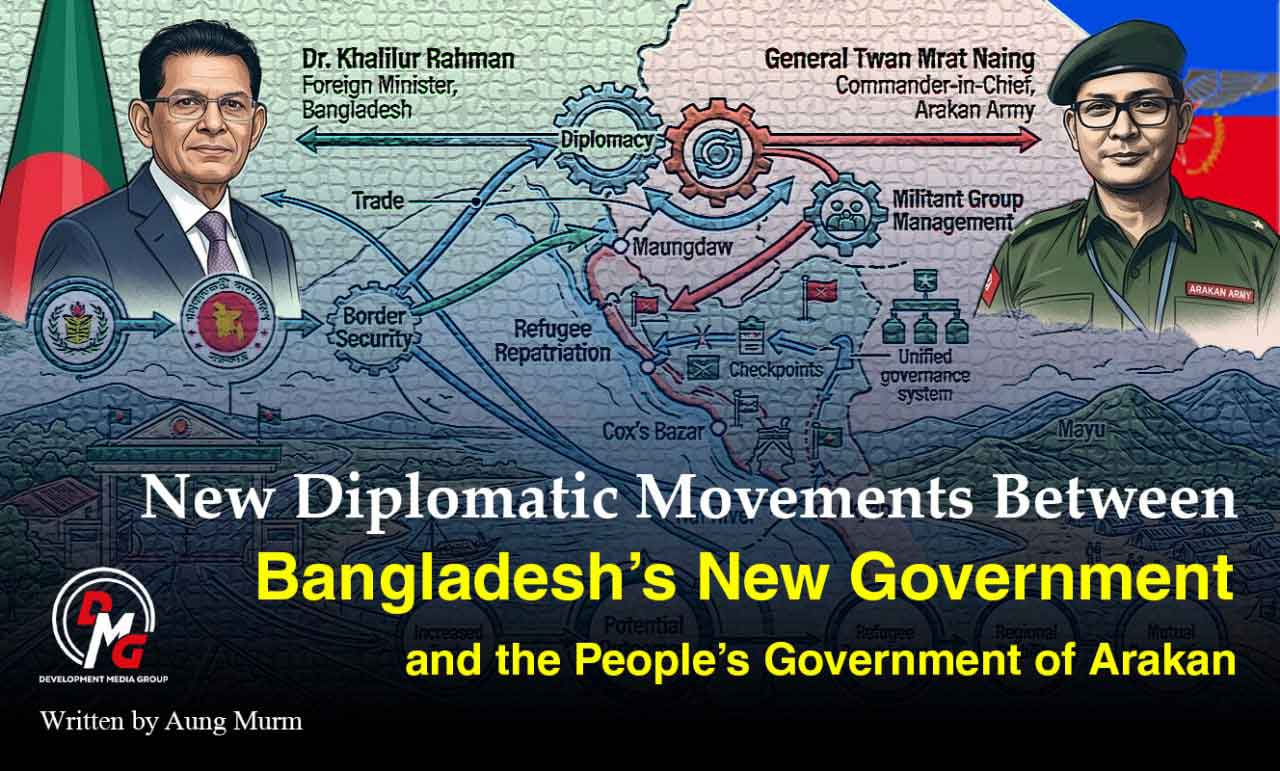- Muslim armed groups killed 162 civilians in two years in northern Arakan: HDCO report
- Arakanese migrants in Middle East on high alert amid escalating Iran conflict
- People with disabilities in Arakan State face severe livelihood hardships amid ongoing conflict
- Junta launches major offensive to retake strategic Mawchi mining town
- Extreme poverty drives Sittwe residents to dismantle abandoned houses for income
Among Arakan State’s war-weary, the disabled especially must be protected
In townships across Arakan State, people with disabilities and the elderly are often left stranded in villages beset by conflict when other, more able-bodied residents flee clashes or the threat thereof.
31 Jul 2020
In townships across Arakan State, people with disabilities and the elderly are often left stranded in villages beset by conflict when other, more able-bodied residents flee clashes or the threat thereof.
We frequently hear word of social organisations in these situations having to rescue the disabled, who find themselves trapped in their homes as war rumbles on around them, heedless of their needs or safety.
One example of this was the 54 people pinned down by fighting near Sauk Khat village in Rathedaung Township for 12 days, with their ordeal coming to an end when they were rescued on June 20. The 54 trapped villagers included one paralytic, two other people with disabilities, six children and a centenarian.
The trapped people in Sauk Khat village would no doubt have suffered from shortages of food, potable water and medical supplies if they had not been rescued in a relatively timely manner.
Given that many people trapped by clashes are senior citizens and people with disabilities, and that these populations are also some of the most vulnerable, it is the responsibility of everyone else — including the government — to pay special attention to these cohorts’ circumstances. That includes prioritising speedy rescues in cases like the Sauk Khat village incident.
The number of internally displaced people (IDPs) in Arakan State has climbed to nearly 200,000 due to clashes between the military and the Arakan Army, according to data compiled by the Rakhine Ethnics Congress (REC). While we don’t have precise statistics on the number of disabled among the displaced, we know that roughly 5.3% of Arakan State’s population were recorded as disabled in the 2014 census. As an estimate then, we can say that there are somewhere around 10,000 disabled people among the IDPs in Arakan State.
Fifteen-year-old Maung Thet Naing Phyo, who once lived in Rathedaung Township’s Kyauktan village, was born with a disability. He cannot walk on his own, and can only walk to a certain degree with help from others. Since his family was forced to relocate to an IDP camp in Sittwe, he is longer able to do the walking exercises that had helped to strengthen his atrophied leg muscles.
Maung Thet Naing Phyo’s story is emblematic of a larger reality, that the disabled require more accommodations and assistance than your average victim of war, whether living in villages threatened by hostilities or in the IDP camps where life is full of challenges even for the fittest of inhabitants.
And as civilian casualties rise due to landmines and other conflict-adjacent violence in Arakan State, the ranks of the state’s disabled is also on the rise. (For those fortunate enough to survive these encounters, a life thereafter without a limb or limbs, or some other form of physical disability, is not uncommon.)
For this reason there is also a preventative component to disability advocacy: landmine risk education programming, which the government must do more to promote and support.
Organisations working for the rights of the disabled in Arakan State struggle with financing and numerous other challenges, and they alone cannot address all the needs of this vulnerable population, especially in a time of war. For example, financial difficulties have prevented these organisations from compiling comprehensive lists of people with disabilities living in Arakan State’s dozens of IDP camps.
Between 2011 and 2015, Myanmar reached five domestic and foreign agreements, frameworks and pledges for the rights of the disabled. The rights of the disabled are enshrined in the Rights of Persons with Disabilities Law passed in 2015 and a subsequent by-law. The implementation steps, however, have a long way to go.
Furthermore, even when the legislation’s full potential is realised, there will likely be issues arising for the disabled in war-torn Arakan State that the law does not account for.
On behalf of the public, Development Media Group (DMG) would like to raise the question of what measures the government has taken or will take to address the needs of the disabled in Arakan State, where their already difficult circumstances are exacerbated by the hardships of war.








.jpg)











